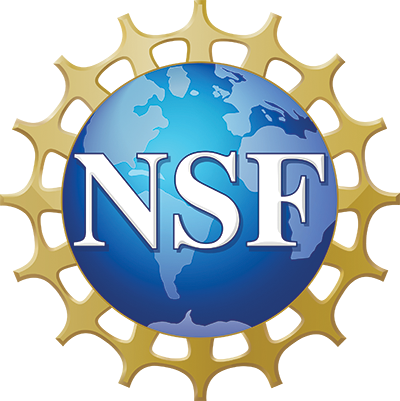
Students participating in the Summer 2022 session of the CI Compass Student Fellowship program (CICF) conducted research using the same tools professional cyberinfrastructure practitioners might use. Now the 2022 CICF cohort will share their research at the eScience Conference 2022 in October, where they will present their work at the poster session. Additionally, the associated paper will be published in the eScience conference proceedings.
To complete their project, students were given access and support to the Chameleon Cloud testbed, Pegasus Workflow Management System, and HTCondor for job management. Utilizing these tools, some of which partner with CI Compass for research, allows students to apply their new knowledge in ways practiced by computer scientists. In their paper, “Application of Edge-to-Cloud Methods Toward Deep Learning,” the students and members of CI Compass detail how they used the tools to classify lake zooplankton, automating the methodologies described in a recent paper [1].
“By analyzing plankton, it is possible to learn about the health of ecosystems and how they have been affected by environmental changes,” the authors state. “This is important in today’s world as we face many climate-related challenges. The experiment run will classify plankton images into 35 different classes and reveal information about the state of the surrounding ecosystem.”
They explain that Chameleon Cloud is a U.S. National Science Foundation (NSF)-funded testbed system that is primarily used for computer science experimentation.
“Chameleon is a large-scale, deeply reconfigurable experimental platform built to support Computer Sciences systems research,” the Chameleon Cloud website reads. “Community projects range from systems research developing new operating systems, virtualization methods, performance variability studies, and power management research to projects in software defined networking, artificial intelligence, and edge computing.”
The students, staff, and faculty running the experiment over the summer noted the responsiveness and support from the Chameleon Cloud team.
“Working with Chameleon was challenging at first, but because of all the help offered by my team, and by the Chameleon Cloud team, I was able to figure it out,” said CICF participant Nona Nersisyan. “HTCondor and Pegasus were familiar, as well. The help I received from my team helped me push through the obstacles. At the end of the program, I was confident in my skills.”
The Chameleon Cloud team also supported the students’ work and learning process.
“Chameleon Cloud’s Principal Investigator, Kate Keahey and her team provided support directly to the CICF students. Working with the science director of a testbed used in all sorts of work in CI is an unmatched experience,” said Loïc Pottier, facilitator of the CICF program and member of CI Compass.
Rajiv Mayani, facilitator of the CICF program and member of CI Compass, also noted Keahey and the Chameleon Cloud team’s coordination of webinars to be able to work with the student schedules in the CICF.
"It’s always exciting to see users’ projects that combine intelligent edge devices with powerful data processing capabilities in the data center” said Kate Keahey, Chameleon Principal Investigator (PI). “There is increasing demand for understanding how to support these types of interactions; so this project not only solves an interesting scientific problem but also advances understanding in how edge to cloud applications can be developed.”
Students using real-world computer science tools gives them the knowledge to bring into their studies, as well as future positions in cyberinfrastructure fields.
“Working with partners in the cyberinfrastructure space, to show future professionals what can be done for the sciences, is just another way we hope to bring more students into the field supporting the NSF Major Facilities’,” said Angela Murillo, co-director of the CI Compass Student Fellowship program and co-PI for CI Compass, “We are working to help students gain an understanding and get excited about potential careers in cyberinfrastructure.”
References:
[1] S. P. Kyathanahally, T. Hardeman, E. Merz, T. Kozakiewicz, M. Reyes, P. Isles, F. Pomati, M. Baity-Jesi. (2021). Deep Learning Classification of Lake Zooplankton https://arxiv.org/abs/2108.05258
About CI Compass
CI Compass is funded by the NSF Office of Advanced Cyberinfrastructure in the Directorate for Computer and Information Science and Engineering under grant number 2127548.
Its participating research institutions include the University of Southern California, Indiana University, Texas Tech University, the University of North Carolina at Chapel Hill, the University of Notre Dame, and the University of Utah.
To learn more about CI Compass, please visit ci-compass.org.
Contact:
Christina Clark, Research Communications Specialist CI Compass / Notre Dame Research / University of Notre Dame
cclark26@nd.edu / 574.631.2665 ci-compass.org / @cicompass






